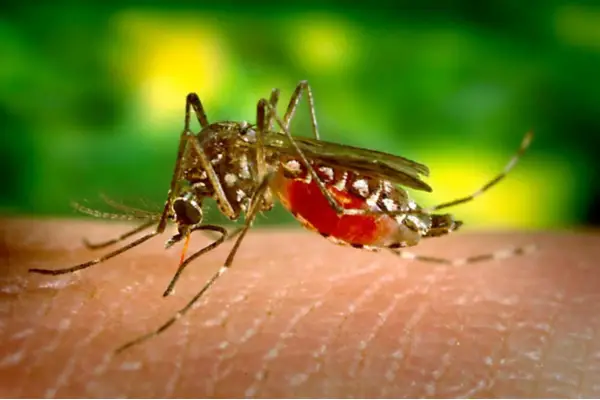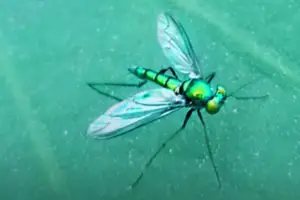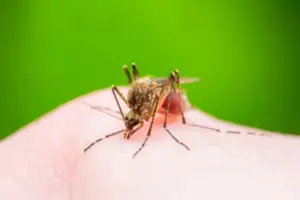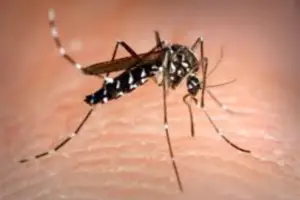In our previous article titled “15 Best Mosquito Repellent Plants ,” we overlooked the mention of zone 6 mosquito repellent plants. However, the mosquito-repellent options we shared are still relevant to this topic.
After receiving requests from our readers, we decided to create a dedicated post specifically about zone 6 mosquito repellent plants.
The purpose of this article is to provide detailed information about zone 6 plants and their effectiveness in repelling mosquitoes. We will also highlight some commonly used zone 6 mosquito repellent plants.
To ensure you don’t miss any important information, please read this article in its entirety. Let’s begin.
What Exactly Is Zone 6 In The U.S.?
The term “zone 6” refers to the United States Department of Agriculture’s (USDA) hardiness system, which categorizes regions based on their average annual temperature.
Zone 6 typically experiences cold winters and mild summers. In the context of mosquito repellent plants, certain species possess natural properties that repel these pesky insects.
Here are six mosquito repellent plants suitable for Zone 6:
Related Post: Homemade Pet Safe Mosquito Repellent For Yard
Zone 6 mosquito repellent plants
When it comes to your garden, here are the best zone 6 mosquito repellant plants:
- lavender
- catnip
- Bee Balm
- Mint,
- Sage
- Allium.
These plants emit fragrances from their leaves and flowers that naturally deter mosquitoes and other insects while still being pleasant for humans.
Now take a look at the zone 6 plants and the accompanying images of these mosquito repellent plants.
1. Lavender
Have you ever noticed how insects, rabbits, and other animals never seem to harm your lavender plant?
This is due to the lovely fragrance produced by the essential oils found on the leaves.
Some argue that lavender oil even disrupts a mosquito’s sense of smell! Once established, this plant is extremely resilient and drought-resistant, requiring only full sun and proper drainage.
While it can thrive in various climates, it particularly flourishes in warmer areas. For more information on growing lavender,
Additional Info
- Plant type: Perennial
- Zones: 5–11, depending on the type
- Bloom time: Summer to fall
2. Catmint
Catnip (also known as catmint) can thrive almost anywhere. It belongs to the mint family and grows abundantly as both a commercial plant and a weed.
While it is relatively low-maintenance, it may invade other areas of your garden.
However, if you can overlook its invasive nature, catmint is an excellent mosquito repellent and comes highly recommended by the BBG.
A study conducted at Iowa State University found catmint to be ten times more effective than DEET, the chemical used in most insect repellents.
Additional Info
- Plant type: Perennial
- Zones: 3-8
- Bloom time: Early summer to fall
3. Bee Balm
If you want to attract beneficial insects like bees and butterflies while repelling unwanted pests, consider planting bee balm, also known as Monarda or horsemint.
Crush the leaves to release their fragrant oils. Additionally, enjoy the colorful flowers that bloom throughout the summer in shades of red, pink, lavender, white, or purple.
Additional Info
- Plant type: Perennial
- Zones: 4-8
- Bloom time: mid- to late-summer
4. Mint
Mint is an excellent nontoxic option for keeping mosquitoes, flies, and even ants away.
The stronger the aroma, the fewer bugs you’ll encounter. Grow mint in pots on your patio for easy access. You can even use a leaf or two in your afternoon tea.
Drying the leaves and using them inside your home can serve as a natural pest control method.
Related Pose: Pet-Friendly Mosquito Repellent For Yard: Keeping Your Furry Friends Safe
Additional Info
- Plant type: Perennial herb
- Zones: 3-8
5. Sage
If you enjoy gathering around a fire pit in your backyard, consider planting sage nearby. Toss some sage leaves into the flames, and the earthy smell will ward off bugs.
Sage can also be dried and used to make homemade bug spray.
Additional Info
- Plant type: Perennial
- Zones: 5-8
6. Allium
Allium bulbs, including garlic and onions, release a strong fragrance that mosquitoes dislike. Enjoy the whimsical globe-shaped flowers of allium, which seem to float atop long, slender stems.
Additional Info
- Plant type: Bulb
- Zones: 3–8, depending on the variety
- Bloom time: Planting to hard frost
Zone 7–11 Mosquito Repellent Plants
Generally,when it comes to your garden, the best mosquito repellent plants include
- lavender
- marigolds,
- citronella grass
- catnip
- rosemary
- basil,
- scented geraniums, and more.
Marigold
Marigolds, easy-to-grow annual flowers, emit a scent that repels mosquitoes. Plant them in pots near your patio or home entrance to keep bugs at bay.
Marigolds are also popular additions to borders and vegetable gardens.
According to the NYBG, they not only repel mosquitoes but also discourage aphids, thrips, whiteflies, Mexican bean beetles, squash bugs, and tomato hornworms.
Related Pose: 15 Best Mosquito Repellent Plants
Additional Info
- Plant type: Annual
- Bloom time: Late spring until frost.
Citronella Grass (Lemon Grass)
Known for its distinctive aroma, citronella grass (or lemon grass) is a widely used natural ingredient in mosquito repellents.
The Brooklyn Botanic Garden even recommends lemon-scented plants like citronella grass to keep mosquitoes away.
The living plant is particularly effective at repelling pests.
Although it requires large planters in colder climates due to its intolerance of frost, in warmer regions, it can be planted directly in sunny areas of the ground.
Additional Info
- Plant type: Usually grown as an annual
- Zones: 9-11
Rosemary
Rosemary is another excellent mosquito repellent. Both the New York Botanical Garden and PlantShed endorse this plant for mosquito control.
Its woody fragrance repels not only mosquitoes but also cabbage moths and carrot flies.
Rosemary thrives in hot and dry climates and does well in containers, making it ideal for regions with harsh winters.
It can be pruned into various shapes and sizes, serving as a great border or decoration.
While pests stay away, you can enjoy the herb’s scent and use it to season your cooking.
Additional Info
- Plant type: Perennial herb
- Zones: 7-10
Basil
Basil, an herb that doubles as a pest repellent, is known for its pungent aroma that keeps pests at bay.
Since various types of basil work well against flies and mosquitoes, feel free to explore and find the ones that suit your garden best.
Basil prefers consistently moist soil with good drainage and thrives in sunny locations.
You can plant basil in containers or in the garden, alone or alongside other flowers, as long as they share the same requirements.
Additional Info
- Plant type: Usually grown as an annual
- Zones: 10-11
- Bloom time: Summer to frost
Citronella or Scented Geranium
Scented geraniums are also popular for repelling mosquitoes. PlantShed, BBG, and NYBG all recommend lemon-scented varieties that resemble the aroma of citronella grass.
The strong fragrance of these fast-growing plants deters several types of pests.
While they thrive in warm, sunny, and dry climates, they can be grown in planters with regular pruning in cold-climate areas.
Additional Info
- Plant type: Usually grown as an annual
- Zones: 10-11
- Bloom time: Spring to fall
Floss Flower (Ageratum)
This attractive annual flower is suitable for bedding or container planting. Floss flower contains coumarin, a chemical that repels mosquitoes.
However, it is toxic if ingested by pets or humans, so caution is advised.
Related Pose: Homemade Pet Safe Mosquito Repellent For Yard
Additional Info
- Plant type: Usually grown as an annual
- Zones: 9-10
- Bloom time: Planting to hard frost
Additional Natural Methods to Repel Mosquitoes
Besides growing the aforementioned plants, it is important to practice good mosquito control in your garden to prevent the pests from multiplying excessively.
The best approach is to prevent the accumulation of stagnant water since mosquitoes can lay hundreds of eggs even in a tiny amount.
Consider using mosquito rings in areas with standing water, such as rain barrels, birdbaths, water gardens, ponds, and animal watering troughs.
These rings contain a naturally occurring bacterium (Bt israelensis) that kills mosquito larvae.
There are also other natural products available to ward off mosquitoes in your garden, including citronella torches, candles, and essential oils derived from the plants mentioned above.
The Significance of Mosquito Control
Over the years, mosquitoes have been responsible for transmitting diseases such as malaria, dengue, yellow fever, encephalitis, and the more recent West Nile and Zika viruses. Mosquitoes also contribute to heartworm in dogs.
Therefore, mosquito control is not just about annoyance or itchy bites; it is a matter of health for your family and pets.





